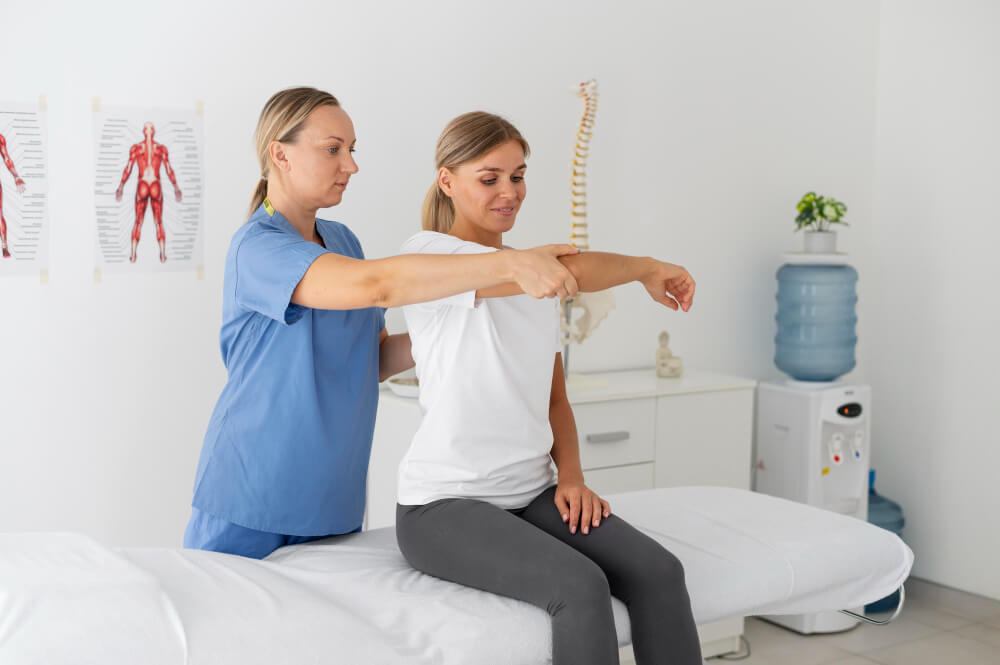Physical Therapy for Work-Related Injuries: A Comprehensive Guide
Work-related injuries are a common occurrence, affecting millions of workers each year. From repetitive strain injuries to acute accidents, these injuries can cause significant pain, discomfort, and loss of productivity. Physical therapy plays a crucial role in the rehabilitation and recovery process, providing effective and non-invasive treatments to help individuals return to their normal activities.
Common Work-Related Injuries
Work-related injuries can occur in various industries and job settings. Some of the most common types of injuries include:
- Back Injuries Back pain is a common complaint among workers, often caused by poor posture, repetitive movements, or heavy lifting.
- Shoulder Injuries Shoulder injuries, such as rotator cuff tears, can occur due to repetitive overhead activities or sudden trauma.
- Hand and Wrist Injuries Carpal tunnel syndrome, tendonitis, and other repetitive strain injuries can affect the hands and wrists.
- Knee Injuries Knee injuries, such as sprains and strains, are common in jobs that involve physical labor or sports.
- Other Injuries Other work-related injuries may include ankle sprains, neck pain, and headaches.
The Role of Physical Therapy in Work-Related Injury Recovery
Physical therapy is a specialized field of healthcare that focuses on restoring function, improving mobility, and managing pain. It can be a valuable tool for recovering from work-related injuries.
- Pain Management Physical therapy techniques can help reduce pain and discomfort associated with work-related injuries.
- Improved Mobility Physical therapists can help restore range of motion and flexibility in injured joints and muscles.
- Strengthening Exercises Targeted exercises can help strengthen the muscles surrounding the injured area, improving stability and function.
- Functional Restoration Physical therapy can help individuals regain the ability to perform daily activities and return to work.
- Injury Prevention Physical therapists can provide guidance on proper body mechanics, ergonomics, and injury prevention strategies.
Common Physical Therapy Techniques for Work-Related Injuries
Physical therapists utilize a variety of techniques to address work-related injuries, including:
- Manual Therapy Hands-on techniques, such as massage, mobilization, and manipulation, to improve joint mobility and reduce pain.
- Modalities The use of heat, cold, ultrasound, or electrical stimulation to manage pain and inflammation.
- Therapeutic Exercises Customized exercises designed to strengthen muscles, improve flexibility, and restore function.
- Gait Training Re-educating the body on proper movement patterns and gait mechanics.
- Aquatic Therapy Exercises performed in water to reduce pain and improve mobility.
Benefits of Physical Therapy for Work-Related Injuries

Physical therapy offers numerous benefits for individuals recovering from work-related injuries, including:
- Reduced Pain Physical therapy can help alleviate pain and discomfort associated with injuries.
- Improved Function Physical therapy can restore range of motion, strength, and flexibility, enabling individuals to return to their daily activities.
- Faster Recovery Physical therapy can help speed up the recovery process and prevent long-term complications.
- Reduced Risk of Re-injury By addressing underlying issues and improving body mechanics, physical therapy can help prevent future injuries.
When to Seek Physical Therapy for Work-Related Injuries
If you have sustained a work-related injury, it is important to seek medical attention promptly. Your healthcare provider may recommend physical therapy as part of your treatment plan.
Signs That Physical Therapy May Be Beneficial
- Persistent pain or discomfort
- Limited range of motion
- Difficulty performing daily activities
- Weakness or loss of strength
Working with a Physical Therapist
When working with a physical therapist, you can expect a comprehensive evaluation and personalized treatment plan. Your physical therapist will work closely with you to set realistic goals and monitor your progress.
- Initial Evaluation A physical therapist will assess your condition, medical history, and functional limitations.
- Treatment Plan Based on the evaluation, your physical therapist will develop a customized treatment plan that addresses your specific needs.
- Regular Follow-up You will typically attend regular physical therapy sessions to monitor your progress and adjust your treatment plan as needed.
Physical therapy plays a vital role in the recovery from work-related injuries. By seeking the expertise of a qualified physical therapist, you can alleviate pain, improve function, and return to your daily activities. With personalized treatment plans and advanced techniques, physical therapy can help you overcome the challenges of work-related injuries and achieve optimal outcomes.
